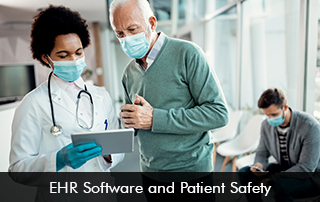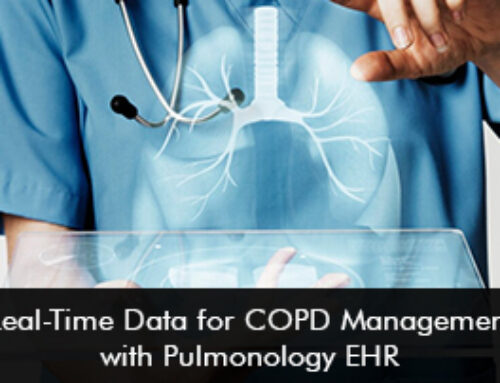Electronic Medical Records (EMR) Software has been widely implemented by hospitals in the United States due to the many benefits they bring. EHR Software technology not only helps to streamline daily clinical, administrative, and financial workflows but also plays a crucial role in enhancing patient safety. Studies have shown that electronic health records can boost patient safety and hence health outcome levels.
Core Benefits of Utilizing EMR Software
A national physician survey revealed the following advantages that can be reaped by healthcare providers by using EHRs:
- The software technology is efficient enough to make patient records available at the point of care.
- By using EMR systems clinical workflows can be simplified and hence productivity levels can go up.
- Electronic medical records adaption can help enhance overall patient care.
The Role of EHR Technology in Patient Safety
Electronic Health Records (EHR) Software is essential in improving patient safety in healthcare settings. Patient safety is an important element of healthcare, and EMR software assists healthcare providers in improving safety by minimizing errors, improving communication, and assuring accurate and complete patient information.
Here are several ways that EMR software improves patient security:
Accurate Patient Data is Available
With the advent of electronic medical records providers can have quick access to updated and accurate patient data to support their decision-making process. Having comprehensive records at hand eliminates the chances of medication errors, and adverse reactions hence enhancing patient safety levels during patient care.
Medication Management with EMRs
Healthcare providers can manage drug orders, doses, and interactions with the aid of EHR software. It can alert to probable drug interactions, contraindications, and allergies, lowering the possibility of incorrect prescribing and unfavorable drug reactions.
Clinical Decision Support Tools
Clinical decision support tools are a common feature of EMR systems. These tools send alerts, reminders, and recommendations based on research-based recommendations. The robust resources support healthcare professionals in making well-informed choices on patient care, assuring the application of best practices, and lowering the possibility of mistakes.
Care Coordination and Collaboration through Electronic Health Records Software
Through interoperability options, EHR solutions improve collaboration and communication between care teams. Real-time access to and sharing of patient data among care providers fosters good communication and lowers the possibility of errors due to miscommunication. Improved integrated care is vital for physicians treating complex patient cases.
For instance, nurses looking after a cancer patient need to coordinate care with other specialties such as radiology, oncology, and surgery. EMRs reduce the time spent on paperwork and making phone calls as all patient records can be available to everyone involved in the patient care process. This results in efficiencies and faster resolutions to enhance health outcomes.







